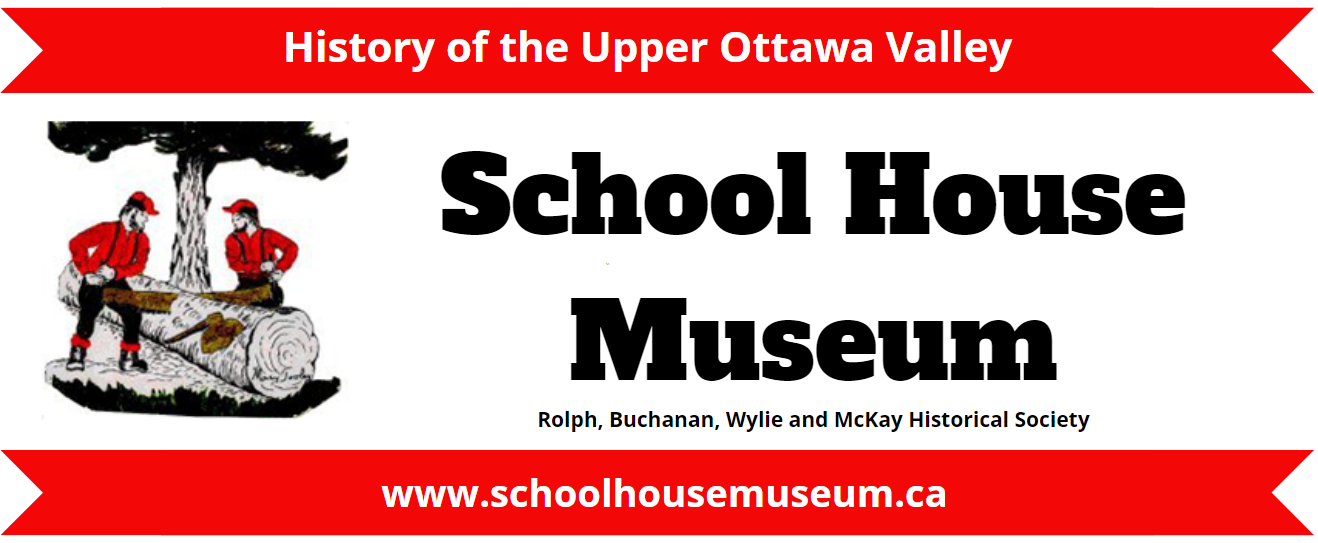
Rolph Township
Rolph Township, along with McKay Township, is one of the oldest in the Upper Ottawa Valley. The township was founded in 1855 and named after the Honourable John Rolph, M.D, (pictured on left) widely renowned as the founder of the Toronto School of Medicine. Rolph was born in Thornbury, Gloucestershire, England in 1793 and relocated to Upper Canada at the age of 19 in 1812, where he quickly gained an interest in politics. He was a proud supporter of William Lyon Mackenzie and was even the President of the Executive Council of Canada in 1853. Rolph also had interests in the colonization of the Upper Ottawa Valley. His efforts and persistence are what prompted the survey, and later of construction, of the Pembroke-Mattawan Road in 1854. His contributions to the Valley in one of its most booming time periods earned him the namesake of his own township.

Buchanan Township
Founded in 1857, the identity of Buchanan Township’s namesake has long been a mystery with no definitive answer, but two options wade high above the rest. There are those who believe the namesake to be George Buchanan, an Arnprior industrialist who was struck during a timber drive and drowned in Lac des Chats in 1837. While playing an important role in his own right, Renfrew County townships in the Upper Ottawa Valley were commonly named in honour of government officials or members of various legislative bodies. This precedent is what has convinced many people that George Buchanan is not the source for this township’s name.
The other man in question, the Honourable Isaac Buchanan (pictured on right), is who most people consider to be the namesake of this township. Buchanan was born in 1810 in Canada where he built a very notable career. He not only served as a member of the Legislative Assembly of Canada, he was also a distinguished merchant in Upper Canada, co-founder of the Great Western Railway, and – much like John Rolph – heavily supported the development of provincial roads.

Wylie Township
The youngest of the townships mentioned, Wylie Township was founded in 1864 and named after the Honourable James Wylie (pictured on left). Wylie, like the other namesakes, had involvement in politics, serving as a member of the Legislative Assembly of Canada prior to confederation. Wylie was also a Ramseyville (later named Almonte), Ontario merchant.
Wylie differs from the other townships in that, unlike Rolph and Buchanan Townships, Wylie is not situated along the shores of the Ottawa River. This change in location is what delayed its settlement until 1864. In fact, Wylie Township was not surveyed into lots until April 14, 1864 when a motion at a council meeting held in Point Alexander on September 18, 1863 suggested, “that a petition be presented to the Commission of the Crown Lands to have the Township of Wylie surveyed into lots as early as possible.” The motion was moved by Robert Law and seconded by William Bell.

McKay Township
McKay Township is possibly the oldest township mentioned, given that it was originally surveyed in 1854, even if it was not officially founded until 1855. This township was named after Thomas McKay (pictured on right), a member of the Legislative Council who served from 1841 until his death in 1855. McKay’s career spanned across multiple fields, finding success in each endeavour. Born in 1782 and based primarily out of Ottawa (then Bytown), McKay was a lumber baron throughout the early 19th century, a masonry contractor involved in the building of the Rideau Canal, and operated a grist mill and clothing factory, the latter of which churned out 150 yards of material daily. At Rideau Falls, McKay operated a sizeable saw mill in 1848, which he later rented to Ottawa lumbermen Kent Dickinson and Joseph Currier in 1853.
His best know accomplishment was the construction of Rideau Hall as his private residence in 1837. The building stills stands and serves as the appointed residence of the Governor-General of Canada.
All information provided above has been graciously collected by Jennifer Mercer and Floyd McQuestion, two former School House Museum members whose contributions helped make the museum what it is today. The Rolph, Buchanan, Wylie and McKay Historical Society would like to thank their families on their behalf. Mercer’s book “Staying the Run: A History of the United Townships of Rolph, Buchanan, Wylie and McKay”, is where the information above and more can be found. The book remains for sale at the School House Museum gift shop for visitors.
Contact
info@schoolhousemuseum.ca
(613) 584 – 2917
35753 Highway 17, Deep River, Ontario, Canada
© Copyright 2000 – 2022, RBWM Historical Society and School House Museum
All rights reserved, www.schoolhousemuseum.ca
Open June Weekends
10 am – 4 pm
Open July and August
Thursday – Monday
or by appointment
10 am – 4 pm
